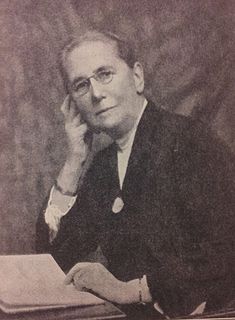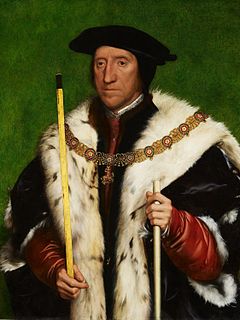A Quote by Savitri Devi
Recalling some of the most spectacular horrors of history - the burning of heretics and witches at the stake, the wholesale massacre of heathens, and other no less repulsive manifestations of Christian civilization in Europe and elsewhere - modern man is filled with pride in the progress accomplished, in one line at least, since the end of the dark ages of religious fanaticism.
Related Quotes
Now that they talk about Islam as being a violent faith, when you look at the history of Christendom, the Crusades and the many wars of religion that were fought, the cruelty of Christians in burning what they believed to be witches and burning heretics, and then very recently they were responsible for the Holocaust... it was Christians.
What other developed democracy has such a ridiculous and squalid history of intolerance? From the imprisonment and roasting of heretics, witches and poachers, to the censorship of literature, art and television: from St Alban through Wilde, Joyce and Lawrence I think we can point with pride to as grim a catalogue of intemperate, bigoted repression as any nation on earth.
Progress has brought us both unbounded opportunities and unbridled difficulties. Thus, the measure of our civilization will not be that we have done much, but what we have done with that much. I believe that the next half century will determine if we will advance the cause of Christian civilization or revert to the horrors of brutal paganism. The thought of modern industry in the hands of Christian charity is a dream worth dreaming. The thought of industry in the hands of paganism is a nightmare beyond imagining. The choice between the two is upon us.
The religious geniuses of all ages have been distinguished by this kind of religious feeling, which knows no dogma and no God conceived in man's image; so that there can be no church whose central teachings are based on it. Hence it is precisely among the heretics of every age that we find men who were filled with this highest kind of religious feeling and were in many cases regarded by their contemporaries as atheists, sometimes also as saints. Looked at in this light, men like Democritus, Francis of Assisi, and Spinoza are closely akin to one another.
It was not Christianity which freed the slave: Christianity accepted slavery; Christian ministers defended it; Christian merchants trafficked in human flesh and blood, and drew their profits from the unspeakable horrors of the middle passage. Christian slaveholders treated their slaves as they did the cattle in their fields: they worked them, scourged them, mated them , parted them, and sold them at will. Abolition came with the decline in religious belief, and largely through the efforts of those who were denounced as heretics.
One of the most persistent fallacies about the Christian Church is that it kept learning alive during the Dark and Middle Ages. What the Church did was to keep learning alive in the monasteries, while preventing the spread of knowledge outside them... Even as late as the beginning of the nineteenth century, however, nine-tenths of Christian Europe was illiterate.
Attorney General John Ashcroft has earned himself a remarkable distinction as the Torquemada of American law. Tomás de Torquemada...was largely responsible for...[the] torture and the burning of heretics — Muslims in particular. Now, of course, I am not accusing the Attorney General of pulling out anyone's fingernails or burning people at the stake (at least I don't know of any such cases). But one does get the sense these days that the old Spaniard's spirit is comfortably at home in Ashcroft's Department of Justice.
What matters at this stage is the construction of local forms of community within which civility and the intellectual and moral life can be sustained through the new dark ages which are already upon us. And if the tradition of the virtues was able to survive the horrors of the last dark ages, we are not entirely without ground for hope. This time however the barbarians are not waiting beyond the frontiers; they have already been governing us for quite some time.






































